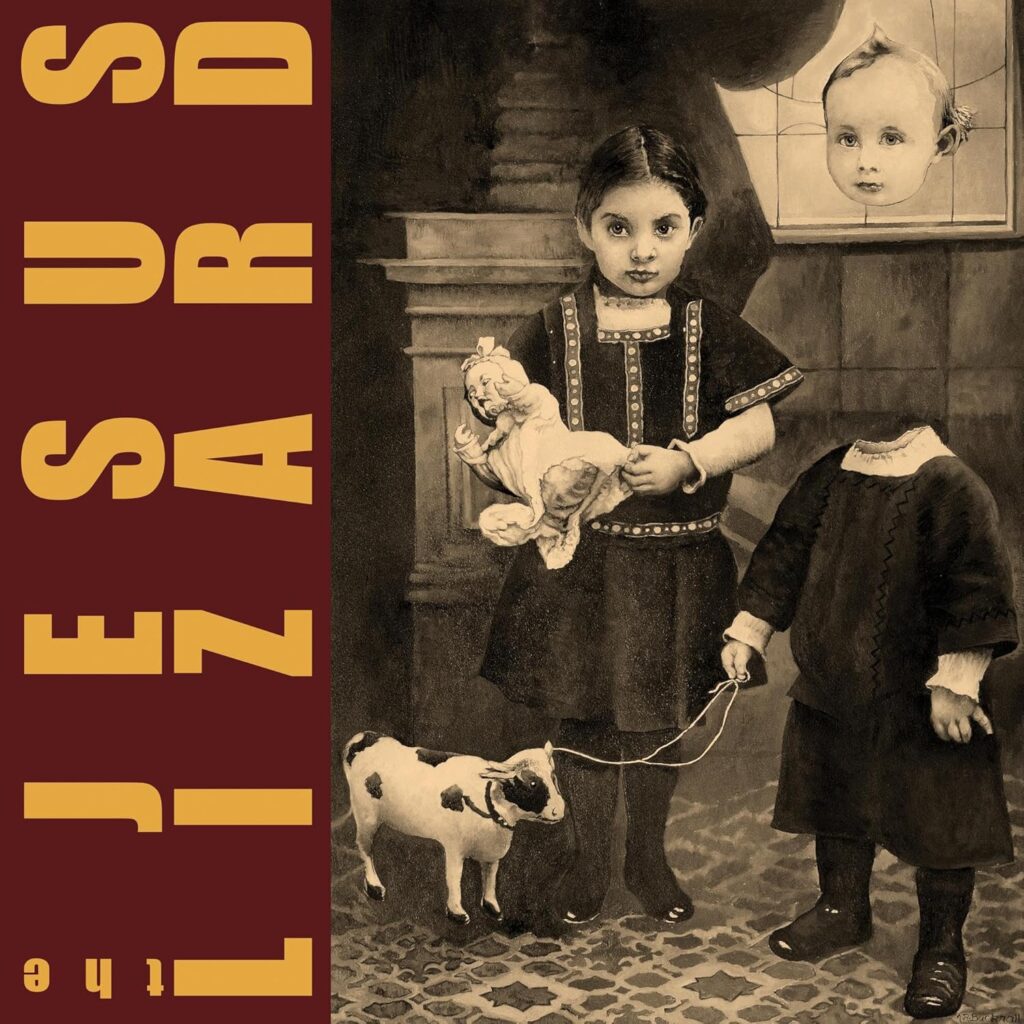
While all music reviews are emotional rather than objective, there are certain bands where any attempt to review is likely to come up short, thanks to the visceral nature of your reaction to their efforts. This is particularly the case with bands that emerged from the frazzled, US alternative scene, with the likes of the Meat Puppets, the Butthole Surfers, and The Jesus Lizard being prime candidates thanks to their blazing intensity and steadfast refusal to play by the rules, be they musical or commercial.
Formed in 1987, the Jesus Lizard released six albums from 1990 – 1998, the bulk of which through the legendary Touch & Go label. A dalliance with major label Capitol resulted, primarily, in a heavy touring cycle that led to burn out in some members and the band’s eventual dissolution in 1999. A brief reunion in 2008 – 2010 seemed to signal the final nail in the band’s coffin, with members citing little interest in returning to more active duty, and it would not be until 2017 that the band would reunite once more. Even so, it has taken another 7 years for any new material to emerge and so, it is with no small amount of excitement, that we find ourselves handling the first new material from the band since 1998’s Blue.
The genesis for Rack lay in demos produced by the band and sent to singer David Yow in 2019. The band decamped to Audio Eagle Studios in Nashville Tennessee, working with local producer Paul Allen. They then signed to Mike Patton’s revered Ipecac label (Fantomas, Melvins, Dave Lombardo, Oxbow) for the release. Noted by the band as a departure point rather than a continuation of what went before, it certainly nods to the past, but it also makes use of the intervening twenty-six years, resulting in a fresh take on a much-loved sound.
Opening with the surprisingly straight forward lead single, Hide & Seek, which has a chunky riff and a Butthole Surfers’ vibe, Rack gets off to a brilliant start. Taut rhythms aside, Duane Denison’s skronky lead break provides the perfect foil to David’s unique howl, and you’ll find yourself wondering if it’s possible that the band have been away for so long, so spontaneous does their interaction feel. It’s followed by the sludgy blues ofArmistice Day, a track that does for Muddy Waters what early Meat Puppets did for Hank Williams. Brilliantly eccentric, it has its own unique identity, making you realise just how badly missed this band has been. Next up, the band unleash an atonal hard-rocker titled Grind, which takes a darkly awkward verse – one part Arabrot, two parts Nirvana – and pairs it with a chorus that sees the riff tumbling over itself on its way to the solo. A blistering, high octane track, it shows that the Jesus Lizard have lost none of their ability to simply rock when the mood takes them. Then there’s the strangely hypnotic What If?, which harks back to the Rollins Band with its semi-spoken-word vocals and jazzy soundscapes. An album highlight, it is refreshingly off-kilter, providing a welcome change of pace from the heavier tracks that precede it. However, its purpose is rather more sinister and, having successfully lulled the listener into a reverie, the band come out all guns blazing on Lord Godiva, a stabbing alt rocker with an unhinged performance from David at its vibrating core.
The second half of the album kicks off with the tense Alexis Feels Sick, which sees Duane’s nimble guitar set against David’s prowling bass line. It’s followed by the stabbing, dramatic post-punk of Falling Down, which sees David delivering his vocals in glassy tones that feel on the verge of shattering against the seismic assault the band unleash on the chorus. The blistering Dunning Kruger sees David by turns whisper and howl as the band lay down a thunderous backdrop that harks back to the days when Kurt Cobain would howl the lyrics to Mexican Seafood through gritted teeth. David commands the stage on Moto(R), his bass providing the canvass on which David and Duane paint their abstract colours. The band keep the pace brisk on Is That Your Hand?, which is entirely built around Mac’s muscular drum performance. Pared back to the bone, the band take post-punk as their starting point, adding a touch of Faith No More’s dark, King For A Day-era playfulness into the mix, just to keep the listener on their toes. This short, sharp album concludes with Swan The Dog, the band deftly employing the quiet-loud dynamic of grunge and cross-pollinating it with Fugazi’s nimble, dub-punk guitarwork. It makes for a suitably dramatic finale and, with that, The Jesus Lizard stroll calmly out of the building they have just set on fire and head off into the night.
Impossible to effectively categorise, the Jesus Lizard draw from a vast melting pot of influences and end up sounding like nothing other than themselves. Touch points abound, but they’re nothing more than the signs of distant stations seen from a speeding train window, helping you to narrow down your location without ever really identifying where you are. The band, surely, would have it no other way. Crucially, the Jesus Lizard easily highlight the timelessness of their music, producing something essentially analogue that could just as easily have been recorded in the 1970s as the 2020s – thus it is the raw power of their performance to which you gravitate. An emotional return from a truly special act, Rack is easily one of the musical highlights of the year. 9.5/10



